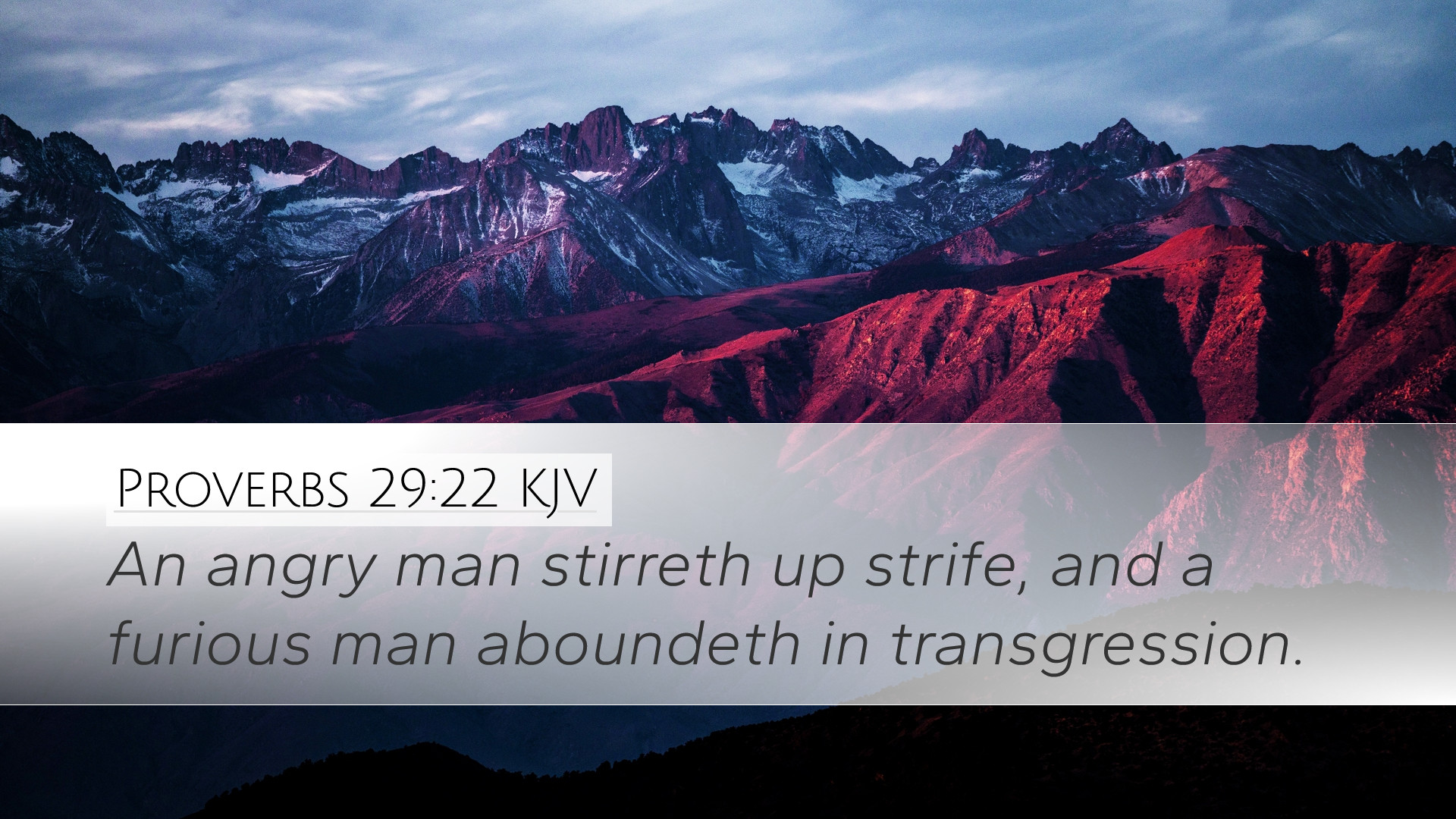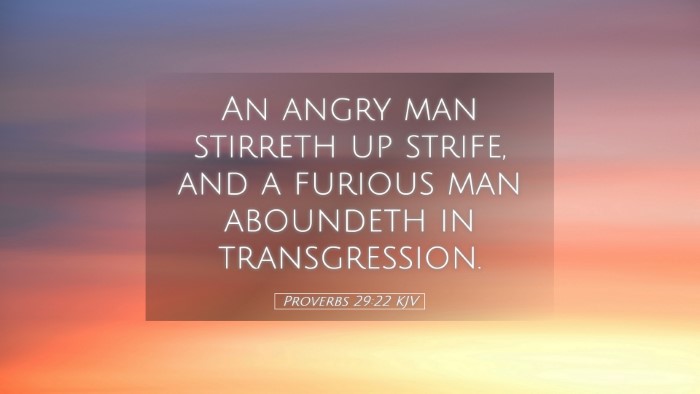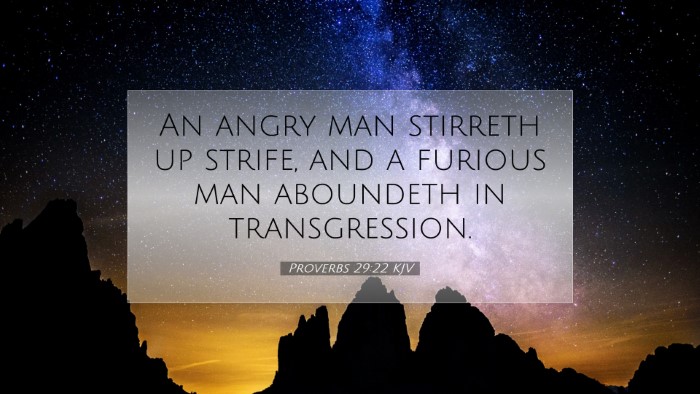Commentary on Proverbs 29:22
Proverbs 29:22 states, "An angry man stirs up strife, and a furious man abounds in transgression." This verse offers a profound insight into the nature and consequences of anger, particularly in the context of interpersonal relationships.
Introduction
The Book of Proverbs is a treasure trove of wisdom that serves to instruct and guide in moral and ethical conduct. This specific verse speaks directly to the perils of uncontrolled anger. In understanding this passage, insights from renowned commentators such as Matthew Henry, Albert Barnes, and Adam Clarke provide depth and clarity.
Analysis of Proverbs 29:22
The Nature of Anger
Henry emphasizes that anger is a natural, human emotion but highlights its potential for destruction when left unchecked. He notes that an angry man is not merely experiencing the emotion; rather, he actively engages in actions that stir strife, which can escalate conflicts.
Stirring Up Strife
Barnes remarks that stirring up strife implies a deliberate choice to incite conflict. The angry individual not only experiences turmoil within but also spreads it outwardly, influencing others and creating discord. This aligns with the biblical understanding of anger leading to bitterness, resentment, and ultimately, destructive behavior.
The Furor of Anger
Clarke notes that the furious man is one whose anger has become overwhelming and uncontrollable. Such fervor not only fosters conflict but leads to sin ("abounds in transgression"). This progression from emotion to action is pivotal for a thorough comprehension of the verse.
The Consequences of Anger
The consequences of anger, as articulated in this verse, are profound. Below are key interpretations drawn from the commentaries:
- Destruction of Relationships: Henry indicates that anger is a relational poison, capable of destroying friendships and community.
- Increased Transgression: Barnes highlights that anger often leads to actions that contravene moral standards, as the angered individual neglects rationale for impulse.
- Spiritual and Moral Deterioration: Clarke stresses that continual anger invites a lifestyle of sinfulness, straying from the virtues of the faith.
Theological Insights
From a theological perspective, this verse reflects the broader biblical themes of the dangers of unchecked human emotion:
- The Need for Self-Control: The fruit of the Spirit (Galatians 5:22-23) includes self-control, which is directly opposed to the impulsiveness of anger.
- Forgiveness Over Retaliation: Jesus teaches in Matthew 5:22-24 the importance of reconciling with others, exhorting believers to prioritize peace over anger.
- The Call to Wisdom: This proverb serves as wisdom literature, urging readers to live wisely in managing emotions and relationships.
Practical Applications
The teachings from Proverbs 29:22 can be applied in various facets of life:
- Conflict Resolution: Understanding the destructive nature of anger can facilitate healthier communication and conflict resolution strategies among individuals.
- Personal Reflection: Pastors and church leaders can encourage self-examination regarding personal anger and its triggers to foster spiritual growth.
- Community Building: By recognizing anger's capacity to stir strife, faith communities can cultivate environments of grace and understanding, prioritizing restoration over contention.
Conclusion
In summary, Proverbs 29:22 serves as a poignant reminder of the weight of anger and its ramifications. The insights from Henry, Barnes, and Clarke offer a comprehensive analysis that underscores the danger of anger, the importance of self-control, and the need for reconciliation. For pastors, students, theologians, and scholars, the challenge is to embody the wisdom found in this passage, promoting peace and righteousness in their lives and communities.


